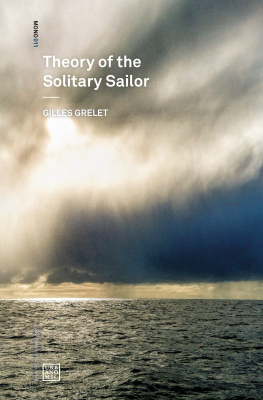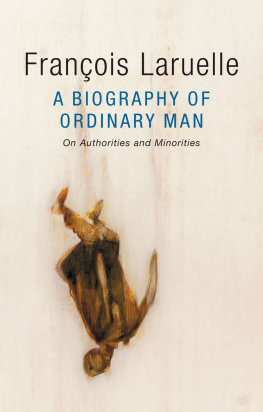OceanofPDF.com
Urbanomic Media Ltd.
All rights reserved.
Urbanomic Media Ltd,
The Old Lemonade Factory,
Windsor Quarry,
Falmouth TR11 3EX
United Kingdom
All rights reserved.
No part of this book may be reproduced or transmitted in any form or by any means, electronic or mechanical, including photocopying, recording or any other information storage or retrieval system, without prior permission in writing from the publisher.
ISBN (Print Edition): 978-1-913029-86-8
www.urbanomic.com
d_r0
OceanofPDF.com
Notice
This is a book in which the sea enters into theory. A book for a theory which, rather than taking the sea as its object, produces itself as subject directly on the sea, occasioned by the world.
Neither a studiously detached case study of a single-handed sailor, nor an essay that takes sailing as its theme as others may take mountain climbing or cycling as theirs, with a view to introducing readers to some philosophy or brand of spirituality, nor a guide in which, donning my sailing instructors hat, I dispense wisdom about the ocean and the vessels that sail upon it. Nor is it a story of my own travels upon the sea.
Indeed, what would I have to say? I can hardly compare myself to the contemporary offshore racer in their speedboat, the adventurer who sails the seven seas looking to cross new frontiers, or even the traveller for whom sailing is simply a way to visit distant lands.
Racer, adventurer, travellerthe three modes of the solitary sailor. I am none of the above.
But I sail, of course. I have been sailing for almost as long as I can rememberI wasnt even a year old when my parents first began to take me on board with them. As time went on I accrued a variety of nautical experiences, sometimes spending six months of the year sailing, until finally, about a decade ago, I made the decision to spend my life on the water, coming to live on board indefinitely with no plans to return to dry land, fulfilling a lifelong ambition. And I sail alone, most of the time. By inclination and as a rule of method. But never going farbetween Ireland and the Azores, lets say. And always choosing windows of opportunity when the weather is right. If I now add that my boat, a robust seaworthy sailboat, eleven metres long, ten tonnes in weight, is manoeuvrable by a single person in all circumstances, it will then be understood that there is decidedly nothing spectacular about my maritime activities.
So why have I opted for a title that seems so inherently suggestive of the sea as spectacle?
I understand solitary sailor in a radical (or human , nothing but human ) sense rather than a spectacular (or worldly , all too worldly ) sense. In other words, I seek to wrest this signifier from the regime of worldly labelsincluding those that designate the sea as a beguiling detour from (yet still of) the worldand make it into a name: that of humans themselves , of humans shorn of world , restored to themselves . A name within which, certainly, there resonates something of Franois Laruelles Ordinary Man and, even more so, Jean-Jacques Rousseaus Solitary Walker, to cite only two of the great trajectories of thought that in some sense pass close to the one I cleave to, the way (I) of a rigorous knowledge of human things (a gnosis, not a human science), (II) of an existential rebellion against the world-thought that is philosophy (a real life, not a realisation). The waysimple, unilaterally dual , divided , divinised of anti-philosophy as rigorous gnosis.
The solitary sailor that I am, without belonging to any of the modes that make up the triplethigh-speed racing, adventurous exploits, far-flung voyagesconsequently adds to them another mode, yielding a quadruplet: alongside the sportsperson, the adventurer, and the explorer, the anti-philosopher.
As is usual in such cases, it is the fourth term that is the key to the organisation of the entire fourfold apparatus, which it establishes directly in the real, directly in humans, rather than leaving it adrift in the world: the anti-philosopher, by adding themselves to the triplet of the solitary sailor, subtracts it from the regime of the worldlythe spectacle of which, as utterly crushing as may be, is not all there is. They determine it more radically to attack the worldly, to attack it at its root: the Sufficient S(p)ecularity ( SS) whose machinations confuse the real with reality and the human with the worldly, laying the foundation for the conformity of humans to the worlds realisatory ends, their submission to the endless practical injunctions to realise and self-realise. In short, the anti-philosopher complexifies the figure of the solitary sailor so as to deliver it over to human simplicity, and so as to oppose to the empire of integral realisation the real rebellion of a way of life with integrity .
And so, the theory of the solitary sailor is the essaying of an anti-philosophy.
Not an essay in anti-philosophy as a genrea genre which, moreover, has scarcely even come into existence, but an attempt to confer a fully positive dimension upon anti-philosophy. To offer something less than a system of anti-philosophy, but more than mere scattered outbursts: an apparatus minimalist yet complete, comprising a canon (a theory of method ) and an organon (a method of theory ), and capable of waging and winning its war of independence against philosophyof being a sovereign heresy (and not one of those heterodoxies upon which orthodox philosophy preys so willingly that, over the past century, it has taken on the allure of what it has digested, heterodoxy having become its dominant mode of being, its principal manner, as twisted as it is effective, of remaining orthodox). The theory of the solitary sailor does not complicate the figure of the solitary sailor, it complexifies it so as to render it more difficult for the world to grasp, before subtracting it entirely from the worlds grip (heretical complexity lies literally at the antipodes of the complications of hetero-orthodoxy, orthodoxy continued by means of heterodoxy, especially critical thought): it radicalises it, and constructs a radical thought from it.
Radical: a thought that grasps things at their root. Which means: the Two of things themselves, in their all-encompassing antagonism. Grasps them and holds fast, refusing both relapse and surpassing, both the yearning for origins and the impulse to progress, the (fusional) One and the (transactional) Three. The complexity at work here is the coherence of Two , against the false simplicity (the illusory acoherence) of the One and the complications (the incoherencies) of the Multiple .
The Two, first and above all, of the real and reality: of human and world; of sea and land. And in the last instance, the Two of the real nothing but real and the real of reality, of human and subject, or of human solitude and the solitary sailor. The Two, also, of subject and thought. Of the sailor and sailing. Of (anti-philosophical) thought and (philosophical) world-thought. And the Two of anti-philosophy itself, whose method, an anti-dialectical method, materialising a theory that short-circuits practice, produces as an ethics the heretic who attacks the hegemony of realisation.
And how better to make the case for the Two of anti-philosophy (in which method intervenes twice over, as that which is separated from theory and as that which materialises their discord, yet to come) than by coining, with a condensation that loses nothing, the word herethics? This book could then be understood as the establishment, directly on the sea, of a herethics . The essaying of a marine herethics.
*
But not only marine.
The sea, although essential and primordial, is not the only element of this herethics. There is another element, decisive enough to demand, if not a problematisation (which is not the object of this book), at least a thematisation; an element I have only gradually, imperceptibly come to accept over the course of the decade spent writing the few pages that follow, pages which, in turn, have increasingly found their privileged space of writing and their primary outlet within it.
Next page











